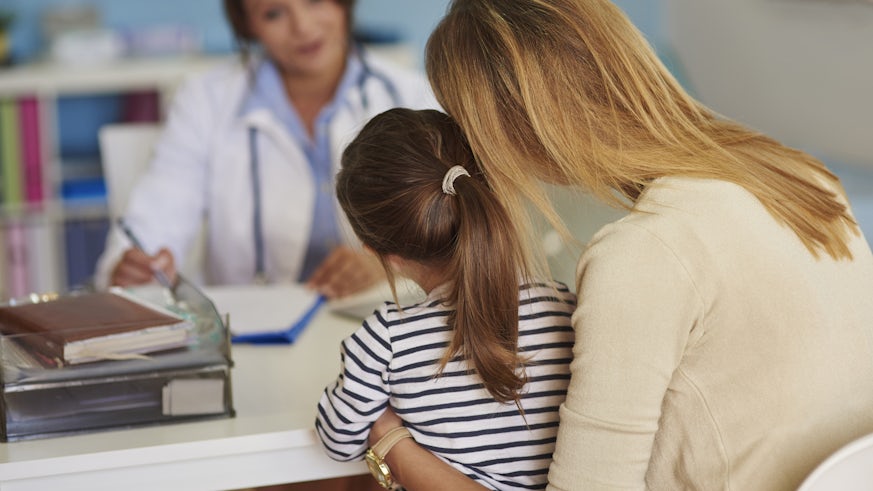Improvements needed to child health services in UK
18 January 2017

A study by Cardiff University has found several areas of primary care where improvements are needed to reduce harm to sick children.
The study, conducted using data from the England and Wales National Reporting and Learning System (NRLS), analysed over 2,000 incident reports, over a ten year period (2003-2013), involving sick children from primary care in England and Wales and found that poor communication underpinned many incidents resulting in harm to children.
Dr Philippa Rees, Alumna of Cardiff University said: “It has been widely acknowledged that child health services in the UK are lagging behind those of neighbouring European countries in terms of quality. Within primary care – where most sick children present – improvement efforts have been particularly stagnant..."
“This study highlights weaknesses in various primary care systems. These are weaknesses that NHS professionals are accustomed to working with and around, in order to prevent harm to children. Healthcare organisations must now address these systems issues to help professionals provide safe care."
"Ultimately we hope this study helps to focus and inspire much overdue improvement efforts within this setting, at both a local and national level, and help us realise one of the fundamental concepts of medical ethics – to first do no harm.”
The researchers found that:
- approximately 30% of all reports described some level of harm to a child
- medication errors in the community pharmacy setting were commonly reported
- incidents involving diagnosis, assessment, and referral of sick children were particularly harmful with ten deaths, 15 cases of severe harm, and 69 cases of moderate harm reported
- poor communication underpinned many incidents resulting in harm to children
The frequency with which certain problems were reported pointed clearly to areas requiring improvement. Recommendations for improvement included:
- more reliable systems for medication dispensing in community pharmacies
- robust evaluation of the effectiveness and safety of NHS 111 in the paediatric population
- mandatory paediatric training for all general practice trainees
- building improvement capability amongst NHS staff of all professions
Dr Colin Powell, Reader at Cardiff University and Honorary Consultant Paediatrician at the Noah Ark Children’s Hospital for Wales, said: “Currently there are major problems in being able to make sure all GP trainees have the opportunity to complete a six month training post in an acute paediatric inpatient unit..."
"Mandatory training in paediatrics for doctors training to be GPs would be an important step towards ensuring every unwell child that seeks medical attention is identified early, managed in the right care setting, and provided with the right treatment at the right time, by someone with the appropriate skills to manage sick children.”
Dr Andrew Carson-Stevens, Patient Safety Research Lead at Cardiff University’s School of Medicine, added: “Healthcare professionals go to work everyday to do their best for patients. This study has helped to identify where we can focus efforts to improve the system to ensure high quality care and safety of children in primary care..."

“Introducing new technologies into practice must be supported by the insights learnt from over two decades of leading improvement in quality and safety of healthcare."
"Those tried and test methods to develop safer healthcare systems will support acceleration of efforts to provide great care to every child, every time.”
The results of the study ‘Patient Safety Incidents Involving Sick Children in Primary Care in England and Wales: A Mixed Methods Analysis’ are reported in Plos Medicine (Rees P et al, 2017).
